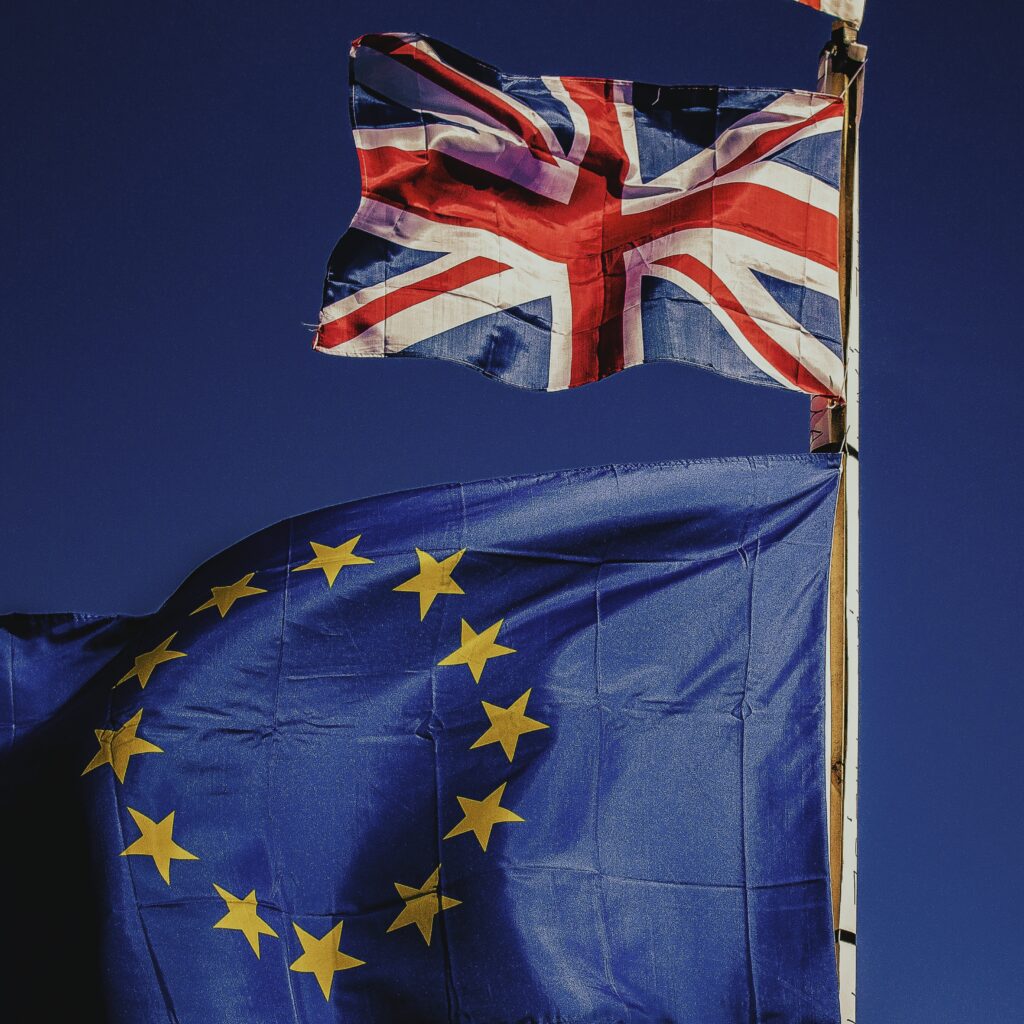In the coming years, the economy will grow less than in the EU countries, with higher inflation and growing problems for the poorest sections of the population. An expected outcome, which the British did not want to acknowledge.
By the editorial staff of Harvard Business Review Italia

In recent days, at the Festival of the Future, we have returned to talk about Brexit. The economy in European countries is, in fact, facing a recession, albeit not deep and not long. But Britain will fare worse as it will grow less, for longer and with high inflation due to factors such as the higher cost of imports created by the weakness of the pound, pressure on wages and lower productivity. All of this had been foreseen by those, and there were many, who advised the British not to be convinced by bad teachers, such as Farage, and not to throw themselves into the great illusion of detachment from the European Union. But it was advice that went unheeded.
But now the knots have come home to roost. A few days ago, for example, it emerged that Brexit has helped to slow down the British economy, due to lack of European workers. This was stated by Huw Pill, chief economist of the Bank of England, according to whom the gap in labor productivity between Great Britain and other European countries is becoming increasingly acute. According to Pill, “Some of the current job gaps were once filled by the constant flow of European workers, on a flexible basis. That opportunity is gone now."
And so there is now a serious emergency of job vacancies, with around 1.3 million unfilled positions, especially in sectors such as public health, transport, food service and retail. This comes after the collapse in the influx of European workers due to the new and harsh immigration policies introduced and also due to the fact that around 600,000 Britons, mainly between 50 and 65 years of age, they no longer work or have decided to leave the job market after the Covid pandemic.
Unemployment is, in fact, at 3.6%, the lowest since the 1970s. But this in itself is not good news, because now the pressure to raise wages and the strikes that have invested the United Kingdom could further aggravate the inflationary spiral, which has already reached the 11% ceiling. Also for this reason, the Bank of England has raised rates considerably, by around 3 points in the last year, after coming close to negative rates in 2021.
Another leading institute, the Center for Economic Performance of the London School of Economics, has calculated that the Brexit has so far cost the British six billion more in terms of food expenditure. In practice, each family paid at least 210 pounds more to buy the same food due to Brexit which resulted in higher customs duties. According to the LSE, "Brexit has helped raise the cost of food in the UK by 3% per year, for a total of 6% in 2022". Overall, we are talking about almost 6 billion pounds of additional costs in the British citizens' trolley (about 6.8 billion euros), equal to about 250 euros per family, with greater impact on the poorest families since these distortions affect i basic needs of people.
All this takes place in a context of recession for the British economy: after the financial disaster signed by former prime minister Liz Truss, the United Kingdom is preparing for two years of severe recession according to the Bank of England and will grow least of all among the countries of the G20 (excluding Russia). In fact, it is expected that Brexit will cause a loss of at least 4 points of GDP between now and 2026.
Therefore, more than six years after one of the most divisive referendums ever and more than two years after the definitive exit of the UK fromEuropean Union is quite clear that there Brexit doesn't work and that you dump all the blame on Covid and on the war in Ukraine it is no longer sufficient because the country is doing worse, if not much worse, than other G7 or economically developed countries. The British economy is suffering more than many others and Brexit is undoubtedly to blame, although nobody wants to talk or question it in the UK, not even Labor who consider the topic toxic.
As you will recall, Brexit was voted by the 52% of the British in 2016, above all against immigration and the free movement of people from the EU, a pillar of the single European market. However, it was already clear then that abandoning the largest collective single market in the world and only a few miles away from the English Channel, i.e. the single European market, would have had deadly costs. And now we see it clearly: according to the British Treasury, Brexit will cause a sharp loss of GDP over the next 15 years despite the fact that new trade agreements have been signed with Japan, Australia and New Zealand, which however will be far from compensating for the losses in trade with EU countries. As an example, the benefits of the free trade treaty with Australia have been estimated at 0.08% by 2035. Miserable crumbs.
When at the end of 2019 the then prime minister Boris Johnson he signed the free trade treaty between the UK and the EU, presented it as a great diplomatic and commercial victory, promising «Zero duties, zero tariffs! We will grow even more!». But that free trade treaty has far more friction, bureaucracy and customs costs than the internal rules of the single European market. As a result, many British companies, especially small and medium-sized ones that cannot afford to open an office in the EU to circumvent the problem, are having enormous problems exporting to Europe, despite a decidedly depreciated pound in recent times due to the financial disaster of the former Prime Minister Liz Truss.
Even in investments, according to statistics, the levels of 2016, the year of the referendum, have never been reached again, while in the US and the EU they are on the rise. And the pound has steadily lost value since the vote 6 years ago, although it should be remembered that this has been a trend for quite some time, at least against the dollar. Then there are the chronic problems of the British economy, such as low productivity, which worsened especially after the subprime mortgage crisis in 2008-2009.
Another undeniable consequence of Brexit are the difficulties that are experienced due to the problems that European workers encounter in obtaining a visa for less skilled jobs, under the strict "points system" on the Australian model approved two years ago by the Johnson government. The consequences are obvious: unemployment is at its lowest level for almost half a century, at 3.8%, but there are still about a million and a half unfilled jobs: many Britons or natives do not want to do certain types of jobs that are exhausting or not very paid, such as working in the fields, on construction sites or even in restaurants, where in the meantime we see more and more young English beginners and often confused because they have no experience. It is no coincidence that the new prime minister Rishi Sunak, an early Brexiter who has always dreamed of the City as the new Singapore on the Thames, symbol of deregulation, is thinking of granting easier visas to unskilled workers. In short, the other Brexit dream, namely that of ever higher wages and full local employment (another Singapore model), does not seem to have come true at all, at least for now.





